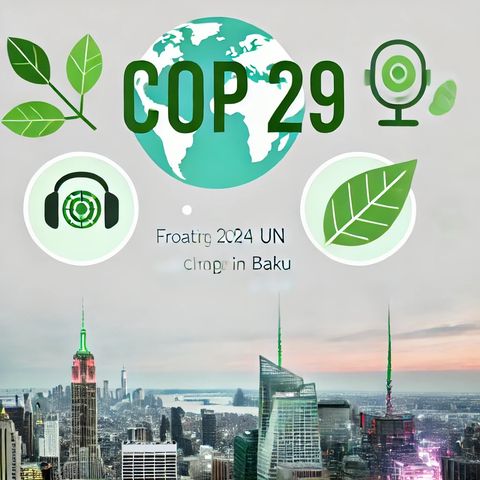20 NOV 2024 · **COP 29: Key Developments and Trends**
The 2024 United Nations Climate Change Conference, known as COP 29, is currently underway in Baku, Azerbaijan, from November 11 to 22, 2024. This critical event brings together governments, international organizations, and various stakeholders to discuss and agree on policies and actions to tackle the climate crisis.
**Health and Climate Action**
A significant milestone at COP 29 is the integration of health and climate action. The conference has seen the establishment of the Baku COP Presidencies Continuity Coalition for Climate and Health, a coalition co-led by Azerbaijan, Brazil, Egypt, the United Arab Emirates, and the United Kingdom, in partnership with the World Health Organization (WHO). This initiative aims to provide a long-standing framework to drive impactful health outcomes from past climate commitments and ensure sustained action on critical health priorities[2].
**Climate Finance and Adaptation**
COP 29 is focusing on financing the response to the climate crisis, with discussions on securing and prioritizing climate funding. The conference also emphasizes the need for ambitious mitigation, adaptation, and loss and damage actions, underpinned by finance of the necessary quantity and quality. The international health and climate community is calling for a New Collective Quantified Goal (NCQG) on climate finance and the embedding of health and climate actions in national policies[3].
**Transportation and Logistics**
To manage the influx of visitors, a comprehensive transport management plan has been implemented in Baku. This includes dedicated transportation services, such as complimentary conference shuttles, hundreds of taxis, and express public buses, to ensure efficient movement within the city[4].
**Global Participation and Criticisms**
COP 29 has seen participation from nearly all UNFCCC member countries. However, there have been criticisms, with EU diplomats expressing disappointment over Azerbaijan's failure to include fossil fuel phaseouts on the agenda. Papua New Guinea has also announced a boycott of the summit, citing previous COP summits as a "total waste of time"[5].
As COP 29 continues, it remains a crucial platform for global collaboration on climate and health issues, with the aim of achieving a healthier, more resilient future for all.


